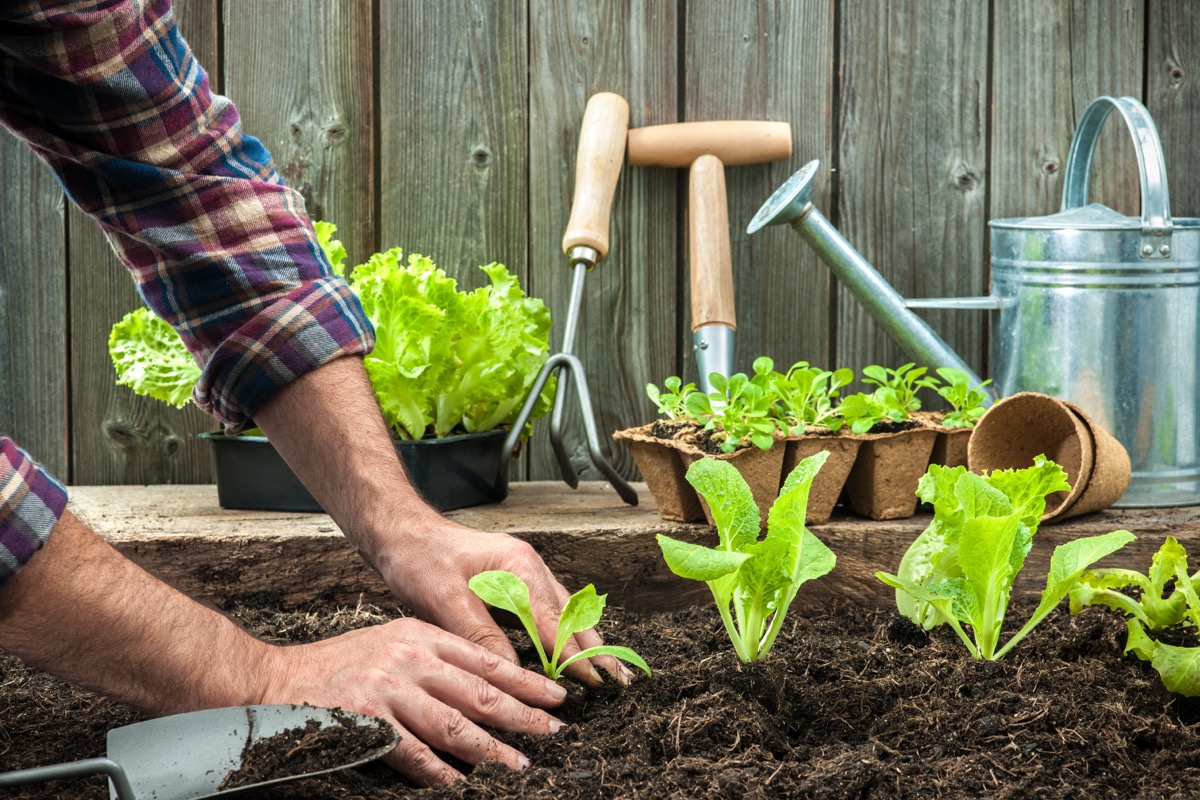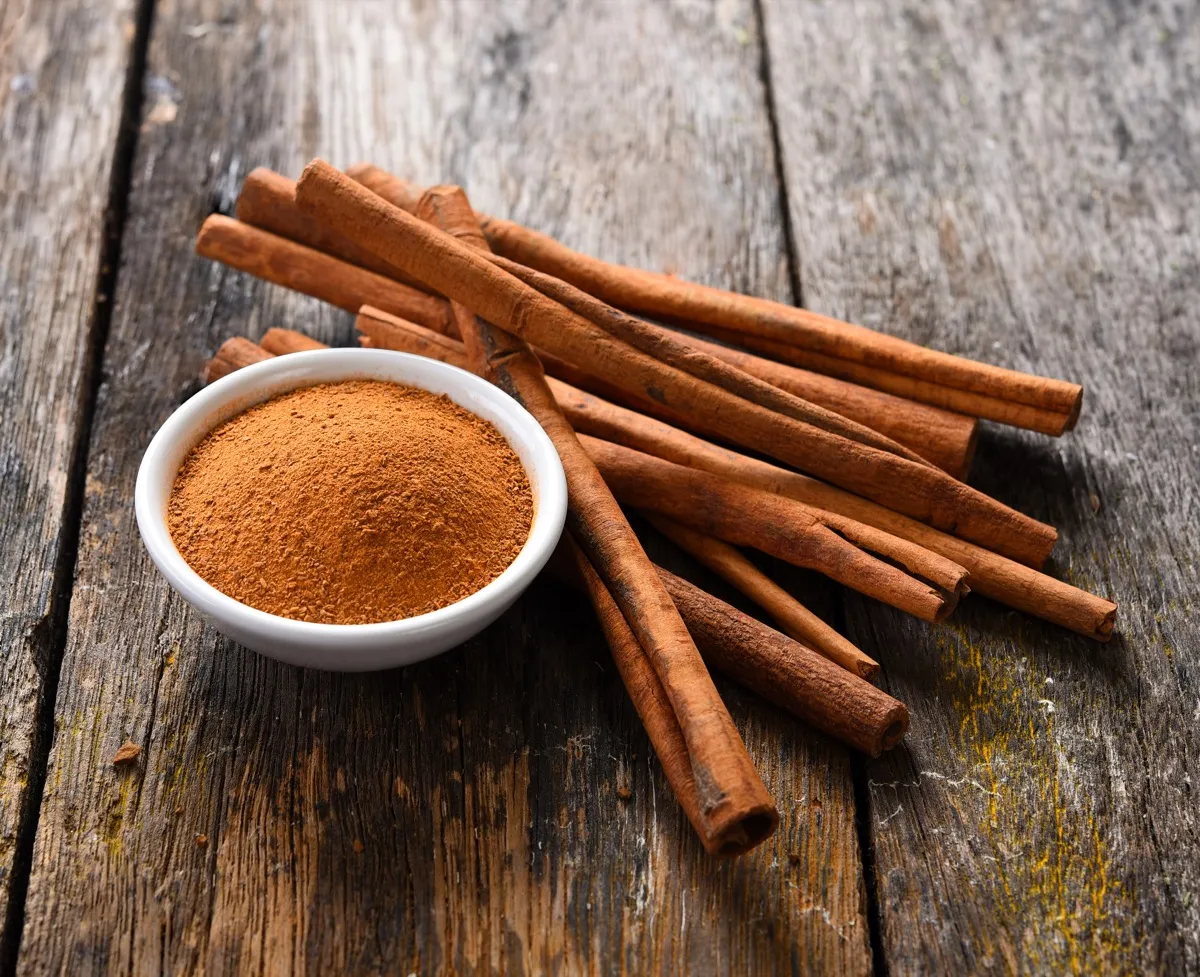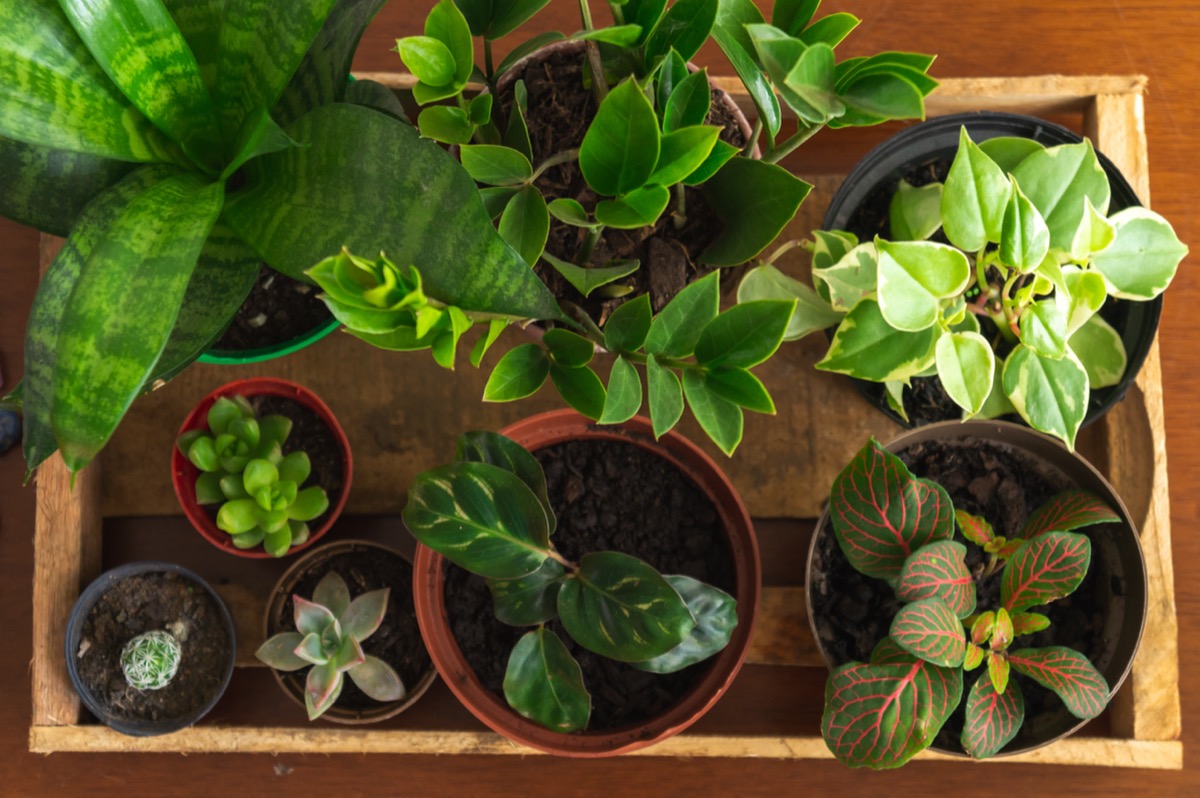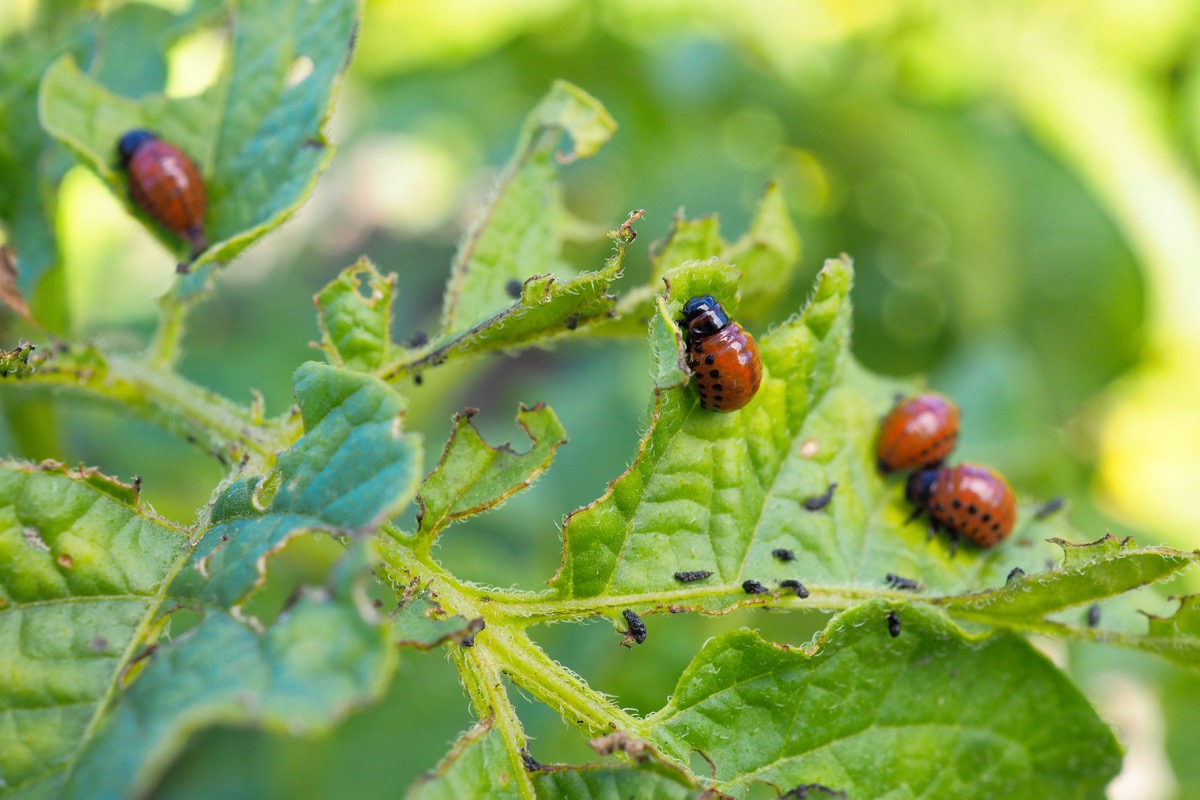This Common Spice Will Prevent Your Plants from Dying

Caring for a garden is tough—yet gratifying—work. No matter how many years of experience you have, you’ll likely deal with common challenges such as pests, weeds, fungi, and drought. These issues can be equal parts personally, financially, and aesthetically devastating. However, there’s one product that just might help—and it’s probably in your spice cabinet right now. Here, gardening experts tell us the common spice that could prevent your plants from dying. A more bountiful crop awaits.
READ THIS NEXT: This Is the One Weed You Should Never Pull, Experts Say.
What is the most common plant killer?

While plants can die at any stage of life, they’re most vulnerable as seedlings (about two to three weeks after germination). At that stage, one of the most common killers is damping-off disease. According to the University of Wisconsin Madison Department of Horticulture, damping-off is caused by several soil-borne fungi that are moved around in the soil and on soil-contaminated items like garden tools and plant pots. The infection can cause root rot and is fatal. If your seedlings are infected, they’ll emerge from the soil looking healthy, but soon collapse and die.
But don’t worry, there’s a way to prevent this.
This spice can prevent damping-off disease.

Obviously, damping off disease is no fun—and once one seedling is infected, it’s easy for the fungi to spread to others. Fortunately, there’s a spice in your pantry that can help: cinnamon. “Damping-off disease is widespread for seedlings and refers to their sudden death,” says Lindsey Hall, horticulturist and co-founder of Positive Bloom. “Cinnamon solves this issue by killing the fungus and ensuring the healthy growth of seedlings.” To use cinnamon to prevent damping-off, simply sprinkle the spice onto the soil as you would sprinkle it onto a stack of pancakes.
So, why is cinnamon so helpful for seedlings? It turns out, the spice has powerful anti-fungal properties. One 2012 study published in the Journal of Traditional Chinese Medicine found that exposure to cinnamon oil changes Candida fungus cells significantly, damaging the cell walls and organelles, and ultimately killing the cells. That process can be replicated with different types of fungi.
RELATED: For more gardening advice delivered straight to your inbox, sign up for our daily newsletter.
It can also act as a rooting agent.

Experienced plant enthusiasts have likely experimented with using plant cuttings to propagate new plants. Doing this requires rooting hormone, which increases the chance your plant cutting will successfully develop roots of its own. According to gardening experts, cinnamon can help here, too. “Cinnamon acts as a rooting agent, so you don’t need to add rooting hormone,” says Hall. “It improves the success rate of propagation by stem cuttings.”
To use cinnamon in this way, Hall says to collect a spoonful of powdered cinnamon and a paper towel. Place the cinnamon on the paper towel, wet the ends of your plant cutting stems, and roll them in the cinnamon. Then, plant the stems in soil. Your stems will produce roots easily and won’t be as susceptible to damping-off.
And repel pests.

Critters like ants and other garden insects can disturb and damage your plants. Cinnamon, again, can help. “The strong smell of the cinnamon is too much for these pests to handle, so you can sprinkle some around the plant itself to keep them away,” says Ray Brosnan, gardening expert and founder of Brosnan Landscape Gardening. “The same principle applies for small animals like squirrels and rabbits; once they get a waft of the strong smell they’ll retreat.” Time to purchase a jumbo pack of this spice, ASAP.